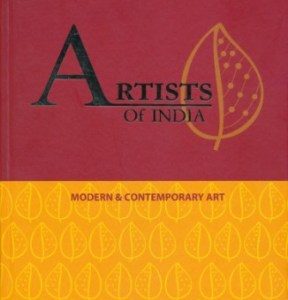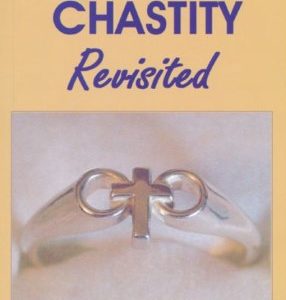Description
Let us know the Author Dr. Felix Podimattam OFM Cap.
Dr. Felix Podimattam is one of the best known Indian authors in the field of ethics and morality. He holds a Master’s degree in Political Science from the University of Mysore, a Licentiate degree in theology from Pontifical Gregorian University, Rome and a Doctoral degree in Moral Theology from the Alphonsian Academy, Rome. His doctoral thesis ‘The Relativity of Natural Law’ is acclaimed as exceptionally excellent. The thesis was guided by the eminent Moral Theologian, Bernard Haering, who influenced the renewal of Moral teachings of the Church during and after the Vatican II. Dr. Podimattam is resident professor at St. Francis Theological College, Kottayam and has been the founding member and first president of the Indian Moral Theologians Association. Most of his books, numbering over 120, are published by Media House, Delhi. Having gone through most of his books, let me highlight the most significant characteristics of his writings. First of all, he engages in a creative dialogue with other authors on every topic of discussion. Second, he tries to compare and integrate, as far as possible, the visions and views of other religions. Third, he holds a very positive attitude to life in general, especially to human body, sexuality, etc. Fourth, he is a keen observer of the socio-political and religious happenings in the society and responds to them immediately. His book on ‘Fast unto death’ during the upheaval of fisher people’s struggle in the eighties and his book on ‘Da Vinci Code’ a few years ago, where he gives a theological response to journalism with half-truths, are worth mentioning here. Fifth, he has taken keen interest on equal rights and dignity to women in the Church as well as in the society. In the context of widespread discrimination against women in the Church and society he published a six-volume work titled: ‘In praise of the woman’. Sixth, he holds on to the sacredness of life in all its forms and he has published books on topics like abortion, euthanasia, etc. Seventh, we find in his writings a harmonious blending of the traditional wisdom with its emphasis on fundamental Christian values as well as the findings of modern sciences like psychology, sociology, anthropology, etc, as well as the latest fruits of biblical exegesis.
The Making of a Masterpiece
The latest contribution of Dr. Podimattam, which may be acclaimed as his masterpiece, is: The Ten Commandments in the Law of Christ, a 20 volume work on the Decalogue. His vast knowledge on the subject gained through painstaking research, his teaching experience in various theological institutes stretching out over four decades and frank discussions with eminent thinkers have gone into this work. These books provide us with a re-interpretation of the commandments keeping in mind the genuine concerns of the people of God and at the same time remaining absolutely loyal to the teaching of Christ – “Christ did not come to abolish the law and the prophets, but to fulfil them”.
CONTENTS
INTRODUCTION
1. VIOLATION OF JUSTICE
1.1. Theft
1.2. Unjust Damage9
1.3. Fraud 11
1.4. Bribery
1.4.1. Moral Aspects of Bribery
1.4.1.1. The Wrongness of bribery in general
1.4.1.2. Tolerability of some forms of bribery
1.4.1.2.1. Support from Scripture
1.4.1.2.2. Support from Moral Theological Reflection
1.4.1.2.3. Support from Sociology
1. 4.2. Pastoral Aspects of Corruption
1.5. Black Money/False Currency
1.5.1. Black Money
1.5.1.1. Sociological Aspects of Black Money in India
1.5.1.2. Moral aspects of black money
1.5.2. False Currencyl9.
1.6. Unjust Cooperation21
1.7. The Civil Law
2.RESTITUTION
2.1. Notion of Restitution
2.2. Moral Aspects of Restitution
2.2.1. Restitution is Morally Obligatory
2.2.1.1. Argument from the Bible.
2.2.1.2. Argument from right reason.
2.2.2. Gravitv of the Obligation of Restitution
2.2.3. Scope of the Obligation of Restitution .
2.2.4. Excuse from, or Delay in, the Obligation ot Restitution 34
2.3. The Grounds of Restitution35
2.3.1. Unjust Possession
3.3.1.1. Unjust possession in good faith
2.3.1.2. Unjust possession in pad faith
2.3.1.3. Unjust possession in doubtful faith
2.3.2. Unjust Damage
2.3.3. Restitution for Damage to Another’s Body, Life, Chastity
2.3.4. Restitution for Evasion of Taxes
2.4. Manner and Circumstances of Restitution
2.5. The Civil Law
3. CONTRACTS
3.1. Nature of Contract
3.1.1. Notion of Contract
3.1.2. Elements of Contract
3.1.2.1. Object of contract
3.1.2.2. Capacity of contracting parties
3.1.2.3. Contractual consent
3.1.3. Obligations arising from Contracts.
3.2.1. Promise
3.2.2. Donation
3.2.3. Deposit.
3.2.4. Loan for Consumption
3.2.5. Contract of Sale
3.2.6. Rent and Leasc
3.2.7. Contract for Service or Work
3.2.8. The Production Contract
3.2.9- Auction
3 2.10. Insurance
3.2.11- Copyright/Patent
3.2.12. Guarantee
3.2.13- Pledge (Pawn) and Mortgage
3.2.14. Aleatory Contracts
3.2.1 5- Building’ Contracts
3.2.16. Hereditary Succession
3.2.17. The Civil Law.
4.PASTORAL ASPECTS OF JUSTICE
4.1. Honesty is the Best Policy
4.2. The Christian and his Earthly Goods
4.2.1. The Bible on Wealth.
4.2.2. Earthly Goods as Gifts of God’s Love
4.2.4. Love’s Sacrificial Gifts and Voluntary Poverty88
4.3. The Poverty of the Rich
4.4. The Wealth of being Poo
4.5. Priorities in Benevolence
4.6. The Right and Wrong of Quota System
Mortal Questions
CONCLUSION




Reviews
There are no reviews yet.